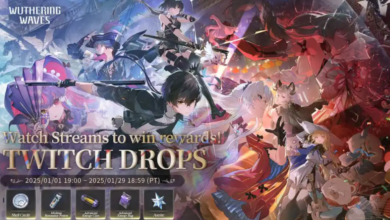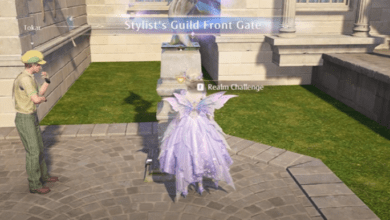The Franchise HBO Review: A Satirical Take on Superhero Movies That Struggles to Fly High
Superhero films have dominated the box office for over a decade, drawing millions to theatres worldwide. But what happens behind the scenes of these blockbuster behemoths? HBO’s The Franchise offers a comical, albeit shaky, peek behind the curtain. Produced by powerhouses like Armando Iannucci and Sam Mendes, the series promises to explore the chaotic world of superhero movie production, where capes, egos, and camera crews collide. Does it live up to its potential? Let’s dive into what works, what doesn’t, and whether The Franchise can find its footing in an already saturated market.

The Premise: A Superhero Movie Set in Chaos
The Franchise takes place during the making of Tecto: Eye of the Storm, a fictional superhero film struggling to come together amidst the usual hurdles of Hollywood production. At the centre is Daniel Kumar (Himesh Patel), the first assistant director (AD) trying to hold the film together while managing a volatile cast and crew. Joining him is a host of colourful characters: the egotistical German director Eric (Daniel Brühl), insecure leading man Adam (Billy Magnussen), Shakespearean-trained actor Peter (Richard E. Grant), and Daniel’s ex-girlfriend, Anita (Aya Cash), who is brought on as the producer. As the production spirals out of control, we get a satirical view of superhero movies and the modern Hollywood machine.
A Satire That Sometimes Misses the Mark
Satire works best when it’s sharp and timely, but The Franchise struggles to offer fresh insights. With superhero movies already being subject to countless online debates, memes, and mockery, this show needed a unique angle. Instead, much of its humour feels like reheated social media commentary. Jokes about superhero fatigue and pandering to foreign markets, while funny, feel slightly outdated. Hollywood has evolved since these issues first became talking points, and the show’s satire doesn’t always keep pace.
The critique of Marvel’s dominance feels especially one-sided. Yes, Marvel has been the poster child for the superhero genre’s success (and occasional excess), but DC Studios, with its own share of controversies, gets off relatively lightly here. It’s almost as if the writers are biting the hand that feeds them but only lightly nibbling the other. This lack of balance makes the show feel less scathing than it could be.
The Cast Shines, But the Characters Don’t Always
One of The Franchise’s saving graces is its cast. Himesh Patel, known for his role in Yesterday, brings a sense of grounded frustration to Daniel, a man who loves the comic book world but is drowning in the chaos of its big-screen adaptation. His exasperation is palpable, and you can’t help but root for him, even as he’s stuck in absurd situations.
Daniel Brühl’s portrayal of Eric, the auteur director, is equally compelling. Eric fancies himself a serious artist trapped in the world of spandex and CGI, a clear nod to directors who’ve publicly criticized superhero films. His constant waiting for a call from Christopher Nolan is a running gag that adds to his delusion of grandeur. But despite Brühl’s excellent performance, Eric feels underdeveloped. His motivations are vague, and the show doesn’t delve into why he’s even part of this production.
Billy Magnussen as Adam, the insecure star of the film, stands out as a highlight. His desperation to be taken seriously while playing a hero with earthquake-causing gloves is both hilarious and tragic. He represents the countless actors who get typecast into superhero roles, never quite breaking through to A-list status. His character’s journey provides some of the series’ most genuine laughs and emotional moments.

Unfortunately, other characters don’t fare as well. Lolly Adefope’s Dag, a production assistant with delusions of becoming an executive producer, is more of a caricature than a fully fleshed-out character. She exists primarily to interrupt scenes and complain about the film she’s working on, but we never get to know her beyond her disdain for the production. Similarly, the romantic tension between Daniel and Anita feels forced, and their past relationship is never explored in enough depth to make their dynamic interesting.
The Industry Satire: A Missed Opportunity
Given the talent behind The Franchise, it’s surprising how much the show pulls its punches. Jon Brown, a writer from Succession and Veep, is known for crafting biting satire. But here, the sharp edges seem dulled. There are glimpses of the industry insight the show could have had, such as a subplot involving a Hollywood studio’s “women problem,” which skewers the way female superheroes are treated in franchises. Katherine Waterston’s guest appearance as a token female character whose role is expanded due to corporate pressure is one of the standout moments of the season. It’s an uncomfortable yet hilarious reflection of real-world studio politics.
But beyond this, the show often recycles industry jokes that have already been covered elsewhere, most notably in The Boys, Reboot, and even She-Hulk: Attorney at Law. When She-Hulk delivers a more brutal takedown of Marvel than The Franchise, it’s hard not to question the show’s bite.
Humour That Can Feel Stale
A common critique of The Franchise is its reliance on easy, surface-level humour. There’s no doubt that the writing team knows how to craft witty dialogue and clever one-liners, but the show sometimes feels more concerned with being clever than being meaningful. A joke about Martin Scorsese’s comments on superhero films killing cinema feels particularly flat. In a world where superhero films have already responded to their critics, lampooning these debates without offering new insights feels like a missed opportunity.
The show’s exploration of superhero fatigue also feels underdeveloped. The idea that audiences and creatives alike are tired of superhero films is certainly a valid one, but The Franchise doesn’t do enough to explore why this fatigue exists or what it means for the future of cinema. Instead, it relies on jokes about overworked visual effects artists and tired actors, which, while amusing, don’t dig deep enough into the issue.
A Weak Finale: The Superhero Parody That Fizzles
Perhaps the most disappointing aspect of The Franchise is its season finale. Without revealing any spoilers, the final episode draws inspiration from two major real-world controversies: Zack Snyder’s exit from Justice League and Warner Bros.’ decision to shelve the Batgirl movie. These events were ripe for a sharp, no-holds-barred satire, but The Franchise goes for easy emotional manipulation instead of the cutting critique it needed. The result is a weak conclusion to a show that promised much more.
It’s particularly frustrating because the series had all the ingredients for success: a talented cast, an intriguing premise, and the backing of HBO. But by the end of the season, it’s clear that The Franchise struggles to balance its desire to be both a scathing critique of Hollywood and a goofy comedy about superheroes. The show’s tone wavers between the two, and in the end, it doesn’t fully succeed at either.
Will The Franchise Soar or Sink?
In an era where superhero fatigue is a genuine topic of conversation, The Franchise had the potential to be a bold and biting take on the genre. Unfortunately, while it has moments of brilliance, it ultimately feels more like a missed opportunity. The cast is excellent, and there are plenty of laughs, but the show lacks the depth and sharpness needed to stand out in an already crowded field of superhero parodies.
For those looking for a light, behind-the-scenes look at the world of superhero filmmaking, The Franchise is worth a watch. Just don’t expect it to break any new ground. Will it soar in future seasons? Only time will tell. But for now, The Franchise is a fun, if flawed, entry into the ever-expanding universe of superhero satire.





